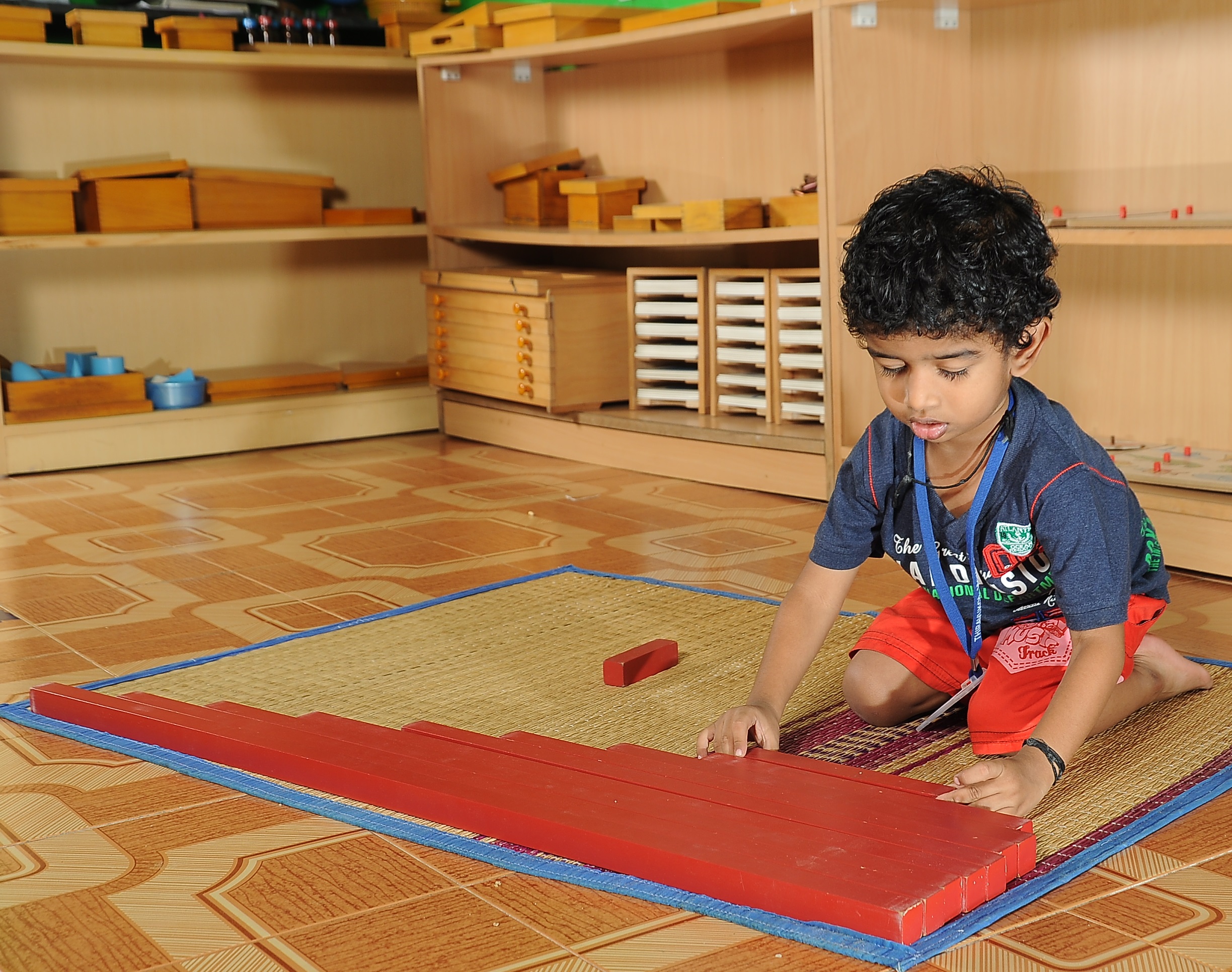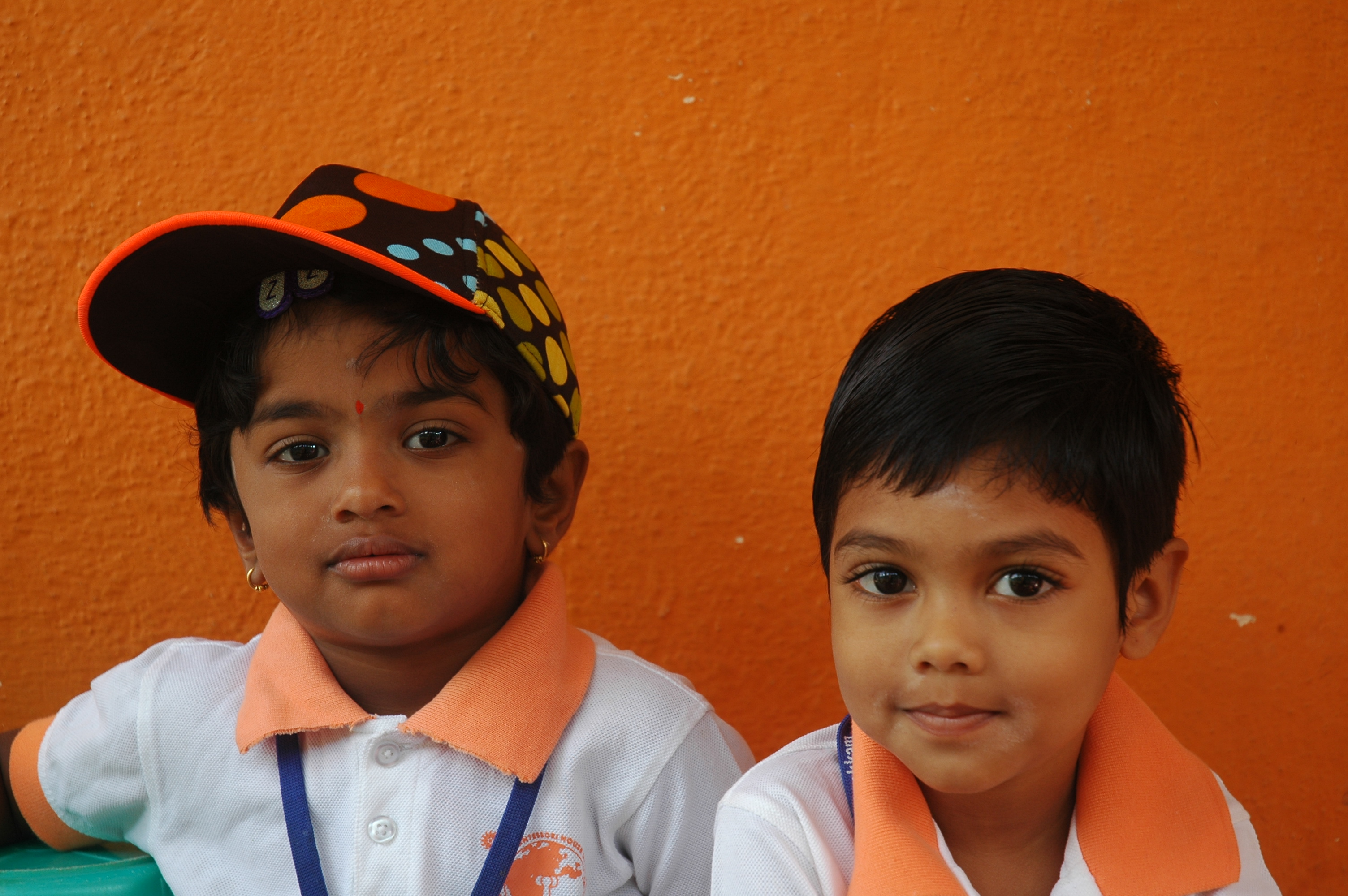Montessori
Montessori Philosophy
The Montessori Philosophy is simple -“follow the child”, which assumes that every child is a unique individual who is naturally driven to grow, develop and learn. Children are born with mental powers which aid them in their own development. However, they cannot complete the task of self-construction without purposeful movement, exploration, and discovery of their environment - both the things and people within it.

They must be given the freedom to develop physically, intellectually, and spiritually. The "Freedom Within Limits “atmosphere of a Montessori classroom provides an environment which nurtures a sense of order and self-discipline. The Montessori School's culture is devoted to helping each child grow toward independence by building confidence, competence, self-esteem and respect for others. The Montessori approach offers a broad vision of education as an approach to life. The School respects children as self-directed individuals and fosters their growth toward independence and social responsibility, while creating a joyful, diverse and family-oriented community. The following are the most basic essentials of Montessori Philosophy.
absorbent mindDr. Montessori observed that the first six years of children's lives are directed by their absorbent minds and they learn in a unique way. Though education is a continuous process, the most crucial period of a child’s development takes place between the ages of 2 to 6. They have an “absorbent mind”, whereby using their senses, they unconsciously create their personality by absorbing from their environment through his very act of living.
sensitive periodSensitive periods in a child's life are like windows of opportunities a child gets to learn different skills. The child is extra sensitive to the stimuli it gets to learn a particular skill at those periods. There is an innate intrinsic motivation to learn that skill which is never the same at another time in the child's life. Children pass through sensitive periods for language, refinement of senses, movement, order, writing, reading, involvement in social life etc. It is during these sensitive periods that there is a great need for total focus, sensorial exploration, and a need for repeating activities in order to master skills.
The "whole child" approachThe primary goal of a Montessori program is to help each child reach full potential in all areas of life. Activities promote the development of social skills, emotional growth, and physical coordination as well as cognitive preparation for future intellectual academic endeavours.
Hands-on learningMontessori classrooms are interactive environments, in which hands-on exploration is not only encouraged, it is necessary by using the mind, the body, and the senses, learning becomes an activity that engages the whole self. Montessori environments follow this natural inclination of children towards activity by offering an appropriate variety of objects and activities for meaningful engagement. Dr. Montessori calls the children's hands the instruments of their brains.
Mixed Age GroupClasses are small and consist of a mixed age group, fostering a community spirit and ensuring that the needs of every child are met. The older children learn to be patient and tolerant of others, especially as the younger children learn accepted social behaviours. The older children love to share their knowledge with the younger ones. By watching the older children work, the young ones strive to challenge them and look forward to future activities. This allows the younger children to become more independent and not to rely totally on adults.

